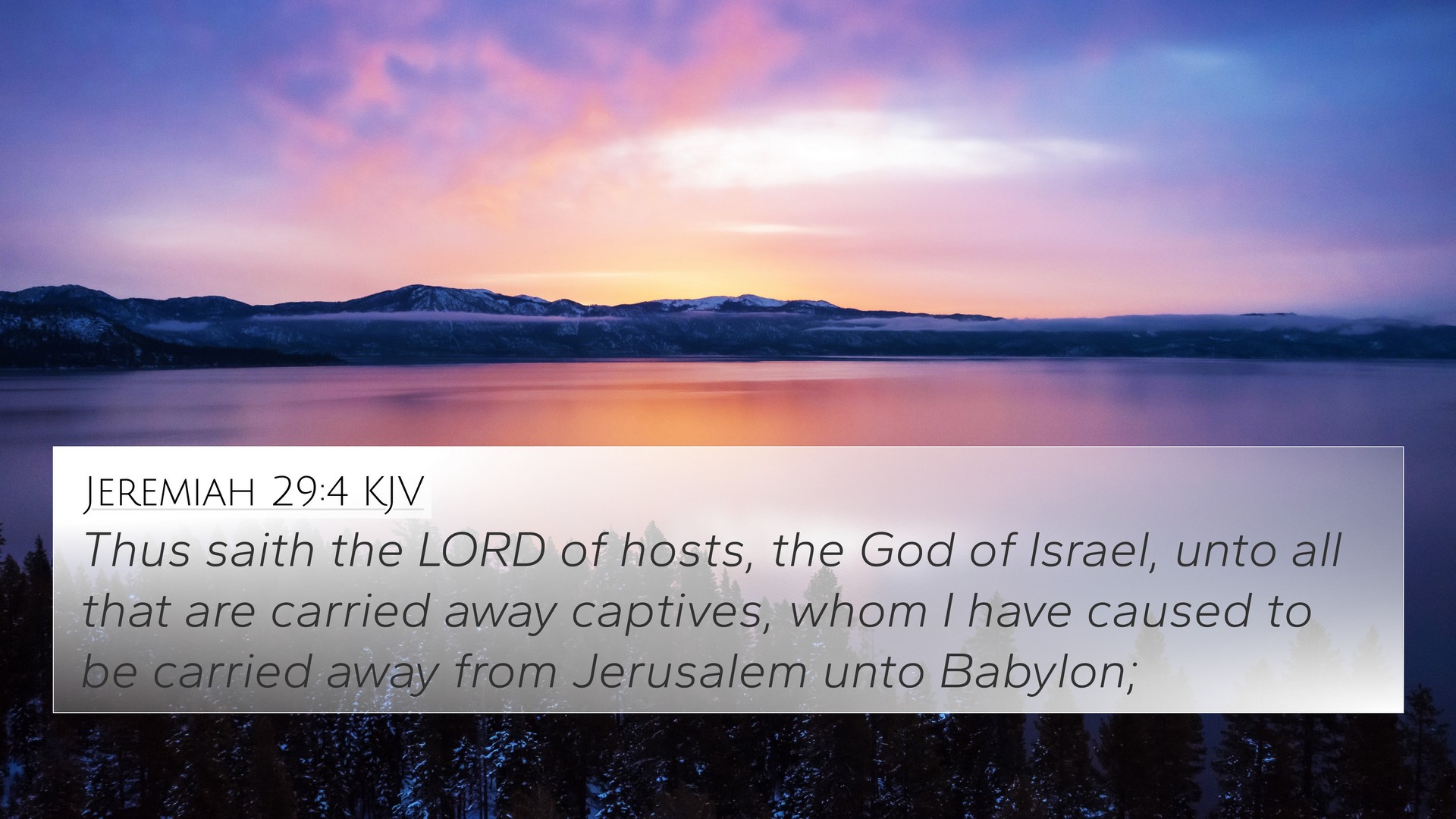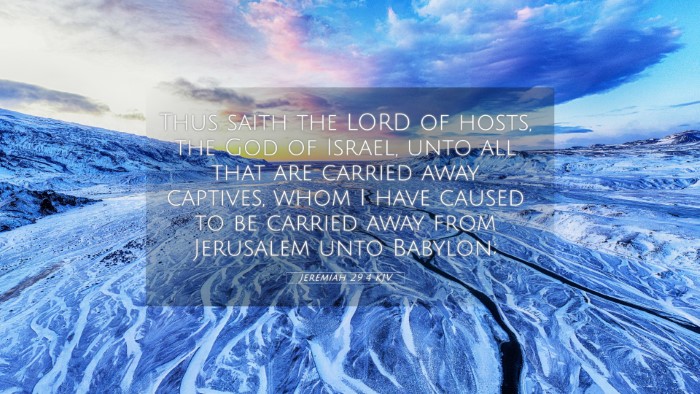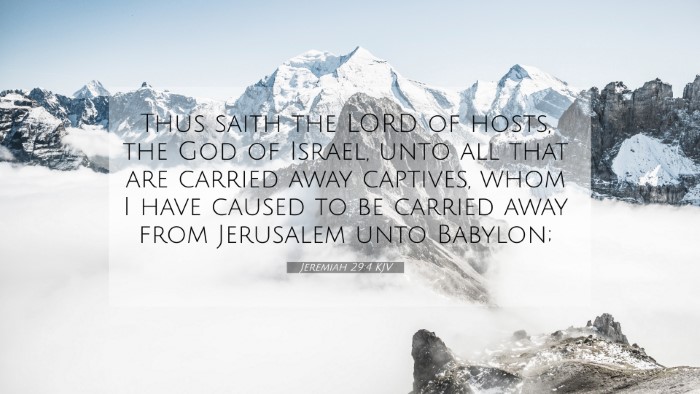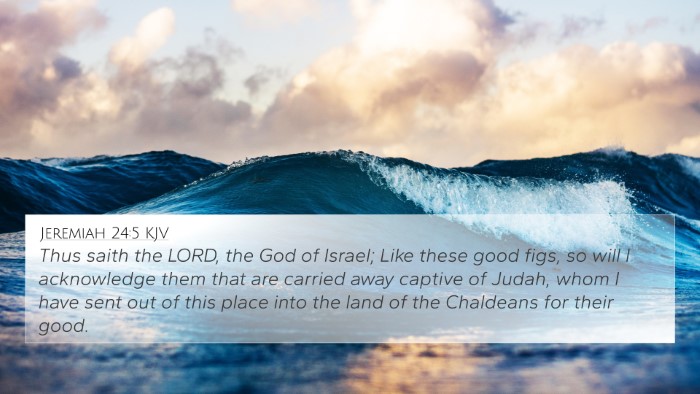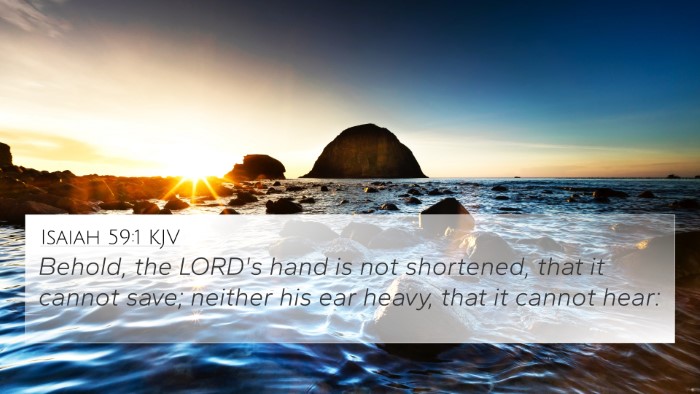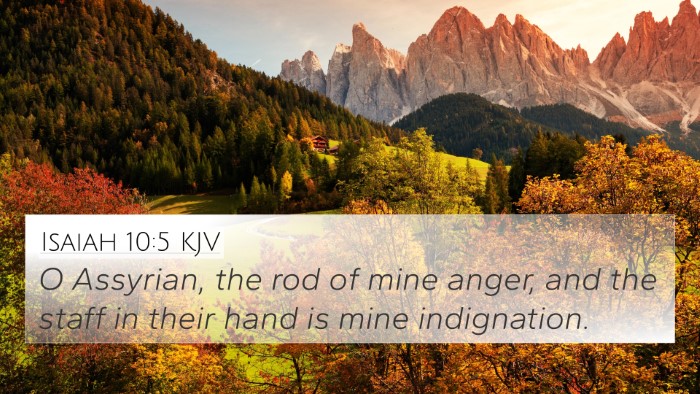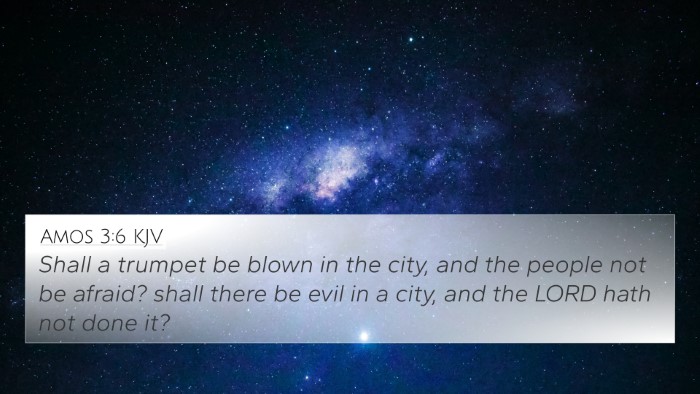Understanding Jeremiah 29:4
Jeremiah 29:4 states: "Thus says the Lord of hosts, the God of Israel, to all the exiles whom I have sent into exile from Jerusalem to Babylon:." This verse serves as an introduction to a letter of instruction from the prophet Jeremiah to the exiled Israelites in Babylon. Below is a comprehensive analysis combining insights from prominent public domain commentaries.
Contextual Overview
The backdrop of this verse is critical for understanding its significance. Following the destruction of Jerusalem, many Israelites were taken captive and transported to Babylon. Here, God, through Jeremiah, addresses His people during their period of exile, a time of despair and uncertainty.
Commentary Insights
- Matthew Henry's Commentary:
Matthew Henry emphasizes the sovereignty of God in allowing the exile. He points out that the Israelites were not abandoned; instead, it was a period of discipline and preparation for restoration.
Henry notes that God did not leave His people without guidance; He spoke to them through Jeremiah, addressing their fears and encouraging them to seek peace even in Babylon.
- Albert Barnes' Notes:
Barnes highlights the specific audience of this message: the exiles. He underlines that it was not the false prophets but the true prophet delivering God’s actual words, reinforcing the idea that God is aware of their suffering.
He also points out that this letter is meant to sustain their hope. God reassures them that their exile serves a purpose and that they will eventually return to their homeland.
- Adam Clarke's Commentary:
Clarke elaborates on the theological aspects, noting that the Israelites' exile is part of the divine plan. This planned event illustrates both God's justice and mercy.
Furthermore, Clarke stresses that God’s communication is vital for their survival and motivation, emphasizing that though they are in a foreign land, they must continue to acknowledge God’s lordship over their circumstances.
Key Themes
- Sovereignty of God: The verse emphasizes God's control over the circumstances of His people, reflecting on how He orchestrates events for a larger purpose.
- Hope in Exile: God provides messages of hope and promises of future restoration to those in despair during their exile.
- Divine Communication: This passage underscores the importance of God's communication through prophets, serving to guide and reassure His people.
Cross-References
Jeremiah 29:4 is related to several other Scripture verses that elaborate on its themes and provide further insight:
- Jeremiah 29:11: "For I know the plans I have for you," declares the Lord, "plans to prosper you and not to harm you, plans to give you hope and a future."
- 2 Chronicles 36:20-21: Discusses the reason for the exile and the fulfillment of the prophecies regarding the land.
- Isaiah 40:1-2: A message of comfort to the people of God amidst their trials.
- Ezekiel 11:17: God’s promise to gather the Israelites from the nations where they have been scattered.
- Romans 15:4: "For whatever was written in former days was written for our instruction, that through endurance and the encouragement of the Scriptures, we might have hope."
- 1 Peter 1:1: Addressing those who are exiles, drawing a parallel between physical and spiritual exile.
- Psalm 137:1-4: The lament of the exiles and their longing for Jerusalem, which sheds light on their emotional state during captivity.
Thematic Connections
This verse and its corresponding insights can be linked to various broader themes within the Bible, demonstrating how different parts of Scripture interact:
- God's Discipline and Restoration: Similar messages found in the Book of Lamentations and in the New Testament, especially in the writings of Paul regarding suffering and hope.
- Faithfulness in Difficult Times: This concept can be cross-referenced with Hebrews 11, which speaks of faith under trial.
- Community in Exile: Reflects themes in the New Testament where believers are reminded of their identity as exiles on earth.
Conclusion
Jeremiah 29:4 encapsulates God's care and plan for His people, even amidst hardship. By examining the connections between this verse and others in the Bible, we gain a richer understanding of God’s overarching narrative of discipline, hope, and restoration.
For those seeking tools for Bible cross-referencing, this verse offers an excellent opportunity to explore the interconnectedness of Scripture and deepen one’s understanding of God's message through His Word.
